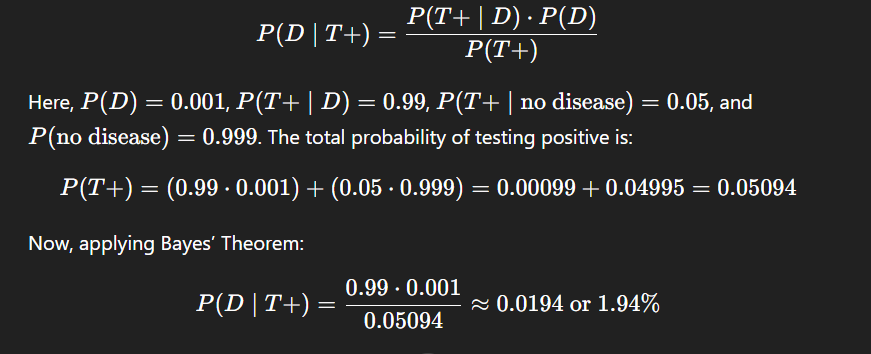Quantifying Believes, or Application of Bayes' Theorem in Philosophy
- Magical Mindful Living
- Aug 3, 2025
- 3 min read
Following article discuss philosophy of believes. But a background in mathematics, and probability is handy.
Bayes theorem, example.
Here I will give you a simple example of Bayes, theorem. You do not need to understand the mathematics involved. But simply look at the question, and the conclusion, after the math. The math involved is not hard, its simple arithmetic, proportions, but the implications to real life are far more important. Now here is the Example.

Example: From ChatGPT.
Imagine a rare disease that affects only 1 in 1,000 people. A medical test exists that correctly identifies the disease 99% of the time when a person actually has it, but it also gives a false positive in 5% of healthy individuals. Suppose a patient takes the test and the result is positive. At first glance, this might suggest a high chance of having the disease — but Bayes’ Theorem gives us a more accurate picture. We want to calculate the probability the patient has the disease given the positive result, using the formula:

So despite a positive test, the actual probability that the patient has the disease is only about 1.94%. This surprising result shows how even highly accurate tests can produce misleading outcomes when screening for very rare conditions, due to the relatively high number of false positives compared to true cases.
Applications of Baye's Theorem
When I look at bayes theorem, I do not worry about the math.I am a philosopher, trying to tackle the life. Yet, I know, that applications of scientific princilples to philosophy is something which has rarely done before. So, lets see application of bayes theorem to philosophy.
In previous article I discussed about the truth.That every truth, is just a belief with some probability of being true. Consider, Atheist, consider, God, consider Devils and heavens. All these are believes with some probability of being true. But when new evidence comes, the probability of being true will actually go down over time. Just like in our case scenario about the rare disease.

Let's apply baye's theorom to the probability of "God". In ancient world people did not know, what is sun, moon and Planets represent.They did not have satellites to take photographs on Mars. So, it is reasonable for them to believe that The existance of "God" is about 99%. But in the new millenia, we have more knowledge and eqquipment. We can travel to the Moon, and Mars, and atleast we know there is no such God in physical form, there. So, the earlier probability of 99% has now gone down, to let's say 60%, As more and more new evidence accumilate, this probability will further go down. Let's say, in next 10000 years of humanity, if undisturbed by nature, will understand probabiliy of God has gone down to 1%. But the real question is will there be anything which achieve 100%
A real Question about Truth
Can we ever exclude or include any observation, that we make about nature as 100%?
I am not sure, how many of consiciousness reading this are able to understand the question. But, the bottom line is, we are far away from detecting a 100% truth. Until then the Bayes, theorom will help us approach the untouchable truth, reducing the margin of error in our believes every day. Well done to humanity!






Comments